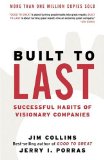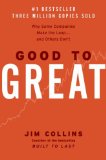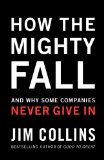When it comes to Peter F. Drucker, people fall into one of two categories.
- They have no idea who he is and have probably never heard of him at all, OR
- they’re well aware of his many accomplishments, his major impact on the business community and are more than familiar with the majority of his 39 best-selling books.
Many books have also been written about Peter Drucker. One of the most recent is titled A Class with Drucker: The Lost Lessons of the World’s Greatest Management Teacher. Author William A. Cohen is a graduate of Drucker’s executive Ph.D. program in management at Claremont Graduate University. In the bibliography of this book, Cohen references an article we wrote for our AchieveMax® newsletter on the subject of MBWA (Management By Wandering Around). If you’d like to review that article you can do so at “Does MBWA (Management By Wandering Around) Still Work?” We’re certainly honored to be mentioned in a book associated with the man known as “The Father of Modern Management.”
For those of you who may not be familiar with Peter F. Drucker, let’s take a closer look.
- Peter Ferdinand Drucker was a writer, management consultant, and self-described “social ecologist.”
- He was arguably one of the most influential management theorists in the world.
- Drucker’s 39 books have been translated into more than 30 languages.
- He made eight series of educational films on management topics.
- He also penned a regular column in The Wall Street Journal for 20 years and contributed frequently to the Harvard Business Review, The Atlantic Monthly, and The Economist.
- He also explored how humans are organized across all sectors of society—in business, government and the nonprofit world.
- His writings have predicted many of the major developments of the late 20th century, including privatization and decentralization; the rise of Japan to economic world power; the decisive importance of marketing; and the emergence of the information society with its necessity of lifelong learning.
- In 1959, Drucker coined the term “knowledge worker” and later in his life considered knowledge work productivity to be the next frontier of management.
- During his long consulting career, Drucker worked with many major corporations, including General Electric, Coca-Cola, Citicorp, IBM, and Intel.
- He also consulted with notable business leaders such as GE’s Jack Welch; Procter & Gamble’s A.G. Lafley; Intel’s Andy Grove, Edward Jones’ John Bachmann; Shoichiro Toyoda, the honorary chairman of Toyota Motor Corp.; and Masatoshi Ito, the honorary chairman of the Ito-Yokado Group, the second largest retailing organization in the world.
- Drucker was awarded the Presidential Medal of Freedom by U.S. President George W. Bush on July 9, 2002. He also received honors from the governments of Japan and Austria.
- He continued to act as a consultant to businesses and non-profit organizations well into his nineties. Drucker died November 11, 2005, in Claremont, California, of natural causes at 95.
About Harry K. Jones
Harry K. Jones is a motivational speaker and consultant for AchieveMax®, Inc., a company of professional speakers who provide custom-designed seminars, keynote presentations, and consulting services. Harry's top requested topics include change management, customer service, creativity, employee retention, goal setting, leadership, stress management, teamwork, and time management. For more information on Harry's presentations, please call 800-886-2629 or fill out our contact form.


 Good to Great: Why Some Companies Make the Leap … And Others Don’t
Good to Great: Why Some Companies Make the Leap … And Others Don’t How the Mighty Fall: And Why Some Companies Never Give In
How the Mighty Fall: And Why Some Companies Never Give In Beyond Entrepreneurship: Turning Your Business Into an Enduring Great Company
Beyond Entrepreneurship: Turning Your Business Into an Enduring Great Company